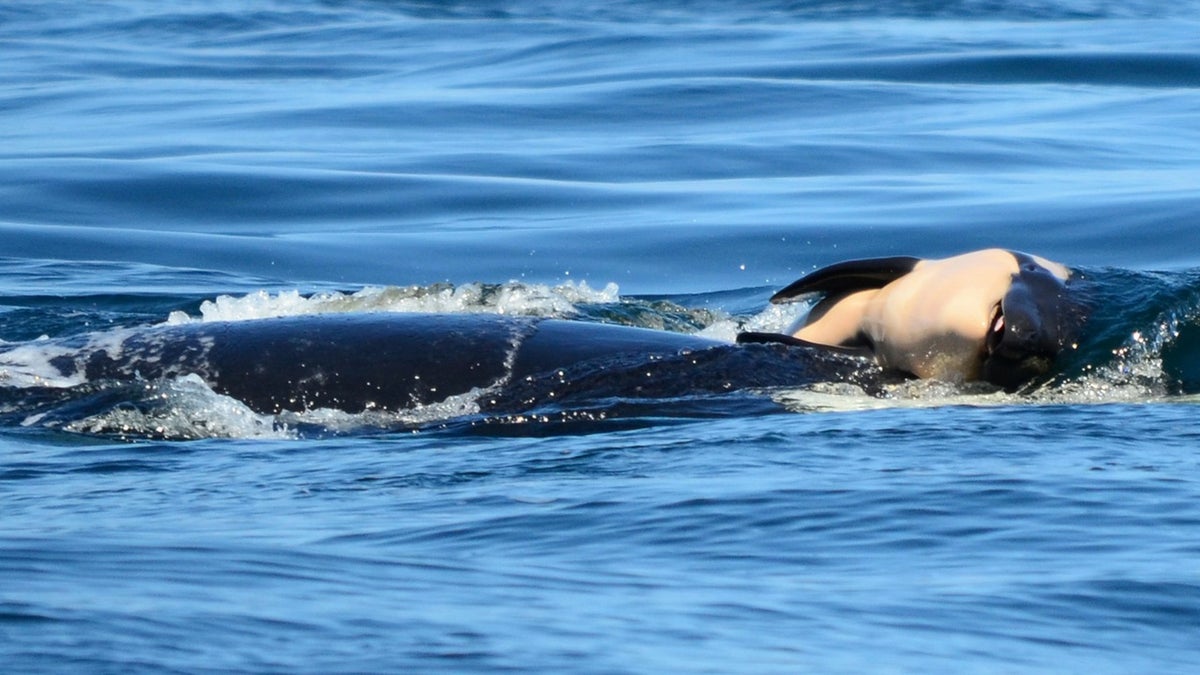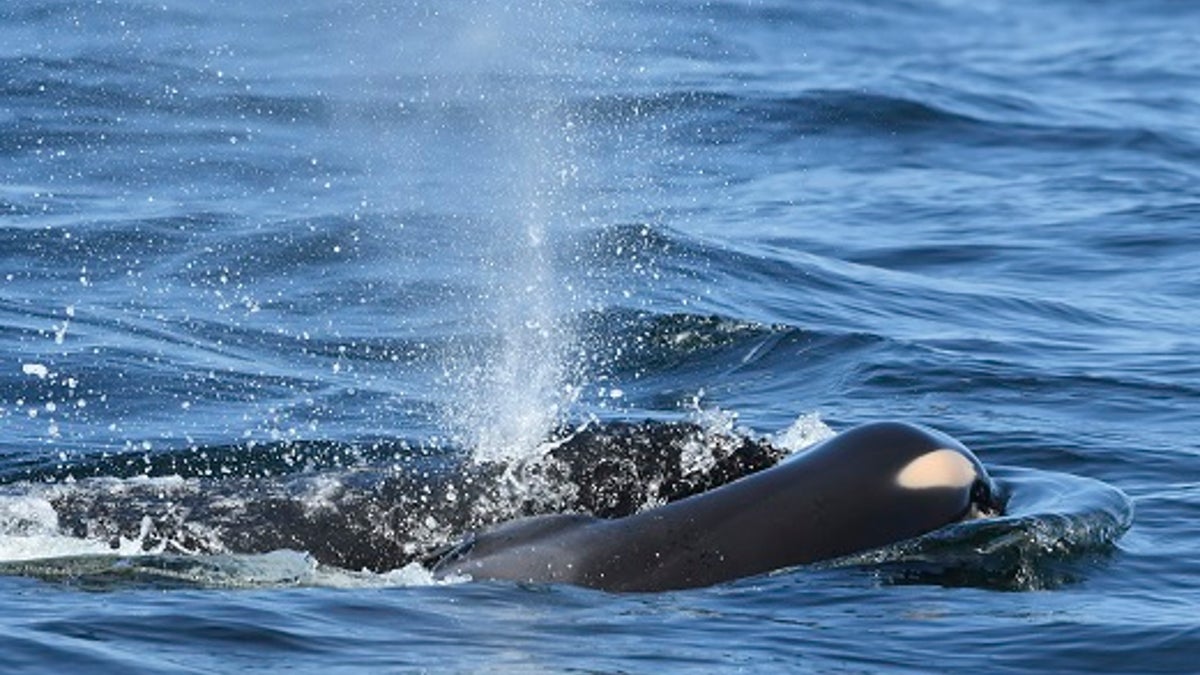
A grieving orca was seen pushing her calf after it died shortly after being born. (David Ellifrit/Center for Whale Research via AP)
Devastating photos show a grieving orca carrying her calf on her head after it died shortly following its birth.
Ken Balcomb, a senior scientist with the Center for Whale Research on San Juan Island, Washington State, said the mother was seen propping the newborn on her forehead and trying to keep it near the surface of the water off the coast of Victoria, British Columbia.
"The baby was so newborn it didn't have blubber. It kept sinking, and the mother would raise it to the surface," he said.
LONGEST TOTAL LUNAR ECLIPSE OF THE CENTURY: WHAT YOU NEED TO KNOW
The baby orca was the first calf born in three years to the endangered orcas, the Center for Whale Research said. However, scientists believe the calf died shortly after birth on Tuesday.
Orcas were listed as an endangered species in the U.S. and Canada over a decade ago. There are indications the mammals are not able to get enough of the large, fatty Chinook salmon that make up their main diet. They also face overlapping threats from toxic pollution and noise and disturbances from boats.
Brad Hanson, a wildlife biologist, told the Seattle Times the situation was “unbelievably sad.”

A dead orca was seen being pushed to the surface of waters by its mother. (David Ellifrit/Center for Whale Research via AP)
Balcomb said the orca was seen carrying her dead calf for two days.
“It reflects the very strong bonds these animals have, and as a parent, you can only imagine what kinds of emotional stress these animals must be under, having these events happen,” Robin Baird, a research biologist, told the Seattle Times.
Several groups on Wednesday said the loss of the calf highlights the need for quick action in order to save orcas from extinction.
DOZENS HEARD AMELIA EARHART RADIO FOR HELP AFTER CRASHING INTO PACIFIC: REPORT
Washington Gov. Jay Inslee signed an executive order in March directing state agencies to take immediate action to help the orcas. A statewide task force he formed has been meeting since May to come up with recommendations. A report is due later this year.
"The death of the orca calf is a heartbreaking reminder of the urgency we face in saving these iconic animals," the governor's spokesman Jaime Smith wrote in an email.
The orcas are distinct from other killer whales because they eat salmon rather than marine mammals. Individual whales are also identified by unique markings or variations in their fin shapes, and each whale is given a number and name. Their movements are closely tracked and photographed by researchers, whale watchers and fans.
The Associated Press contributed to this report.








































